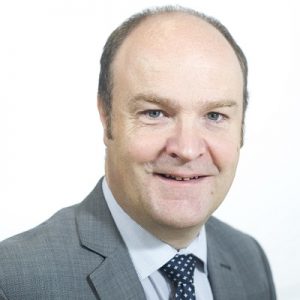We heard from Chris Hale of Universities UK about how universities use benchmarking to understand their management data. As a follow-up, the Efficiency Exchange asks Dr Giles Carden, director of strategic planning and analytics at the University of Warwick, for his views.
Why should universities pay attention to business intelligence and benchmarking?
Business Intelligence (BI) is, in my view, important for any organisation. BI and benchmarking helps universities to develop a comprehensive understanding of their performance. HEIs are complex organisations and senior managers often think they have a clear and far reaching understanding of performance when in reality they do not. This is why smart organisations are investing in BI and analytics systems, and we have taken this approach at Warwick.
What would be your top tips for applying BI and benchmarking?
- Ask yourself: where are we on our BI journey, what’s our maturity level?
- What level of investment can my institution afford?
- What are the initial priorities for my institution?
- Embedding BI and benchmarking in strategic planning is critical. Understanding existing and historical performance can help research and set new strategic objectives.
- The next step is for BI to be used to help assess how well your strategic plan is being implemented. Thereafter you can reflect on whether your strategy is on course or needs to be adapted.
Chris Hale spoke about three areas that are limiting the potential of benchmarking in the sector. Care to expand on these?
- The quality of the available data on professional services operational costs isn’t good. HESA Finance Record data is very high level and therefore of no real use. This means HEIs would need to voluntarily agree to collect data and accept the cost associated with this and form benchmarking clubs or agreements.
- There are real challenges in getting consensus between institutions on what should be measured and how. Agreeing a taxonomy of professional services activities will be key. HEIs vary enormously in size, shape and organisational structure. Some have devolved and some centralised services, many have a mix of the two. Indeed some outsource services.
- The implications of competition law were also raised as a concern. We do need to be very aware of the Competition Act, and although I’m no lawyer, I believe the main issues relate to whether organisations are instigating restrictive business practices, seeking market dominance or colluding on pricing. I wouldn’t have thought benchmarking professional services costs would present any problems. One would need to proceed with caution if one intends to share other specific types of data.
Open and big data are becoming increasingly important in industry. How can universities work together to make the most of their data?
Both big data and open data are topical terms bandied about by leading management consultancies and indeed they are both interesting and exciting areas. In general, the data held in HEIs corporate systems would constitute ‘little’ rather than ‘big’ data.
My team are currently working on a research project with data scientists Tobias Preis and Suzy Moat in Warwick Business School’s Behavioural Sciences Group to see if Google Trends data can help to predict the future number of applications we have for our courses. The project is in its early stages.
On the issue of open data, I think there is enormous potential for the higher education sector to improve its sharing of data on procurement and achieve better value for money.
What’s on your roadmap at Warwick?
At Warwick we have a wide programme of analytics projects under development. We already have research performance, and space resource dashboards and late in 2013 we launched Education Analytics on undergraduate study and student experience. We’ve already discussed a project using big data and we are looking at the potential use and application of predictive analytics. We are also developing dashboards on the University’s commercial performance. There is also considerable potential to look at detailed analytics on energy usage and carbon reduction across campus.
Finally, what do you like to do when you’re not planning or analysing?
I really enjoy spending time with my family, I have a 2 year old son. I’m also a keen cook, which inevitably also means I enjoy wine!
Dr Giles Carden is director of strategic planning and analytics at the University of Warwick








